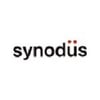Docker has become synonymous with containerization, helping developers to deploy applications seamlessly across various environments. However, it's not the only player in the container ecosystem. With evolving technology and different organizational needs, alternatives to Docker are gaining traction. Here, we explore six docker alternatives in 2024, each offering unique features and benefits that may be more suited to specific use cases or environments.
Best Alternatives to Docker
1. Kubernetes
Originally designed by Google and now maintained by the Cloud Native Computing Foundation, Kubernetes is not a containerization tool itself but a container orchestration system. It's often paired with Docker or any container runtime to manage the lifecycle of containers. However, with the Kubernetes Container Runtime Interface (CRI), it supports various runtimes including run, the default Docker container runtime, and others like CRI-O, giving it flexibility.
Benefits:
- Scalability: Kubernetes excels in scaling applications automatically based on traffic and usage.
- Load Balancing: It can distribute network traffic to ensure that the deployment is stable.
- Auto-healing: Kubernetes can restart failed containers, replace, and reschedule containers when nodes die.
Kubernetes is best for enterprises needing robust orchestration, auto-scaling, and management of containerized applications.
2. Red Hat OpenShift
OpenShift, a product of Red Hat, extends Kubernetes and provides a more comprehensive platform-as-a-service (PaaS) solution. It is built around Docker containers and orchestrated and managed by Kubernetes on the backend, but with added features that enhance developer productivity and promote security.
Benefits:
- Integrated Development Environment: OpenShift includes built-in development, testing, and deployment tools for streamlined workflows.
- Enhanced Security: It offers robust security features out-of-the-box, making it suitable for enterprises with stringent security requirements.
- Multi-tenancy: Support for multiple users and isolation between different project environments.
OpenShift is ideal for organizations looking for a full-stack solution that extends Kubernetes' capabilities with additional tools and security features.
Hyper-V Containers
Hyper-V Containers extend Microsoft's Hyper-V virtualization technology, offering an isolated environment for each container. Unlike Docker, which shares the host OS among containers, Hyper-V Containers run each container in its own virtualized OS, providing enhanced isolation.
Benefits:
- Strong Isolation: This makes Hyper-V Containers ideal for environments where security and compliance are paramount.
- Windows Integration: Seamless integration with Windows-based applications and infrastructures.
- Performance: They provide near-native performance, making them suitable for high-performance requirements.
Hyper-V Containers are best for businesses deeply embedded in the Microsoft ecosystem and needing strong isolation for security.
4. Podman
Podman is a daemonless container engine for developing, managing, and running OCI Containers on your Linux System. It can be used as a drop-in replacement for Docker but doesn't require a running daemon to function.
Benefits:
- No Daemon: Podman operates without a daemon, enhancing security and making system management simpler.
- Rootless Mode: Allows users to run containers without root privileges, increasing the security of container operations.
- Compatibility with Docker: Podman can manage the same images and containers as Docker, making it easy to transition.
Podman is suitable for developers and organizations looking for a more secure, daemon-less alternative to Docker.
5. LXC (Linux Containers)
LXC is one of the pioneers in the Linux containerization space, focusing on providing a lightweight container environment that behaves more like a virtual machine by providing a full Linux process and user space.
Benefits:
- Lightweight: Uses fewer resources than traditional VMs.
- Mature Technology: Has been around longer than Docker, proving its stability and reliability.
- Flexibility: Can run multiple Linux systems on the same host.
LXC is ideal for users who need full Linux systems in isolated environments and prefer a lightweight alternative to VMs.
6. runc
runc is a lightweight, portable container runtime focusing on spawning and running containers according to the OCI specification. It’s the default runtime for Docker and Kubernetes but can be used independently for managing containers.
Benefits:
- Simplicity and Portability: It’s straightforward to use and can be embedded into larger systems.
- Standards-based: Fully supports the OCI container runtime specification.
- Lightweight: Minimal resource usage, focusing solely on running containers.
runc is perfect for developers and systems integrators looking for a minimal, compliant runtime to integrate into custom platforms.
Conclusion
Each of these Docker alternatives offers unique advantages tailored to different requirements and environments. Whether you're looking for enhanced security features, better integration with existing infrastructure, or a more lightweight and flexible solution, these platforms provide robust options for managing and orchestrating your containerized applications in 2024. Choose the one that best fits your project needs and organizational context to optimize your deployment strategies effectively.







Top comments (0)